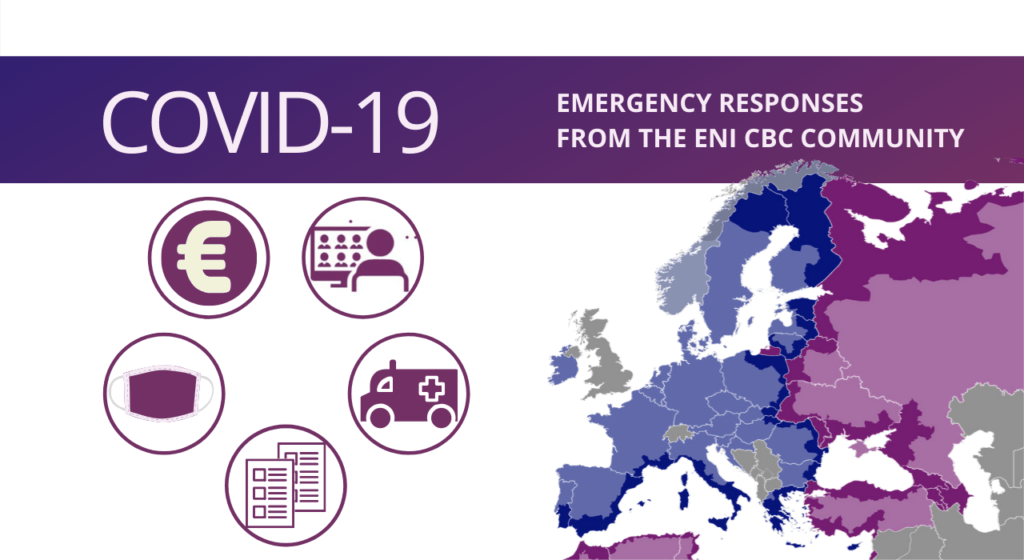Flexibility, liquidity, simplification: a response to the emergency
In a previous edition of this bulletin, we presented you the first measures taken by the ENI CBC community in order to cope with the immediate consequences of the COVID-19 outbreak. Now that the situation seems to have stabilised in many countries, it is time to catch up with the story where we left it.
The first immediate impact at programme level was represented by the lockdown and the subsequent travel limitations. In order not to delay neither the implementation of current programmes nor the launching of the post-2020 programming process, all the scheduled meetings of the different committees have been moved to an online scenario and, even if not in always in the originally planned dates, they are all taking place.
On top of this, a wide range of both remedy and flexibility solutions have been granted by the programmes to their projects. On the remedy side, twelve programmes have recognised the eligibility of the expenditures already incurred and related to those meetings and events that the projects had to cancel. With the prolongation of the lockdown in several countries continuing without a clear end date, eight programmes have decided to allow the partial or full suspension of project activities.
But the need to suspend activities does not apply to all projects. Quite the opposite, some of them have adapted to the reality and have even re-oriented their activities to provide solutions to the many emerging challenges. Two examples of such projects, RESCUE and the TED-MEX Alliances project have also been showcased in this bulletin and, in fact, they have been showcased as best-cases in many communication channels of DG REGIO, including the Twitter highlights by the Commissioner Elisa Ferreira.
Despite all the immediate solutions put in place and the good examples coming from the field, the halt to many activities at project level, in particular those with a stronger cross-border dimension, has already caused implementation delays and the solution to this problem cannot rely on simply catching up time. A new implementation framework will be needed.
This convincement has led 12 out of the 15 ENI CBC programmes to submit an official request to the European Commission in order to modify the ENI CBC Implementing Rules and postpone the deadline for completion of project implementation from 2022 to 2023.
To that, the Commission launched regulatory changes to enable the regions on both sides of EU external borders to benefit from the same opportunities as internal EU border regions. These changes, embedded in the framework of the Coronavirus Response Investment Initiative Plus (CRII Plus) adopted on 22 April, are foreseen to align further the legal rules of ENI CBC and Interreg and to enter into force in the shortest deadlines. They were presented to the Managing Authorities and Joint Technical Secretariats in an information meeting that took place on Monday 25 May; the event was attended by all ENI CBC programmes, showing the interest that the proposed measures encounter in the community. In addition to the extension of deadlines, these measures are meant to give programmes with flexibility and with liquidity, providing also simplification in several spheres of programme implementation. Moreover, the possibility of a retroactive award of projects dealing with emergency responses is also envisaged. Even if a number of clarifications must be addressed, ENI CBC programmes welcomed the positive changes that these measures bring and do intend to benefit from them.

All these actions show how promptly the ENI CBC community has reacted to such unprecedented challenges and how, step after step, the negative consequences are being gradually absorbed. TESIM has gathered all this in a factsheet that you can find and download from our Library.
Prospects of reopening internal borders start being on the agenda of the Member States these days. This would be a major step towards a full normalisation, and we hope that the opening can be extended soon also to our neighbouring countries. Even if not to the full extent of how it used to be, it seems that we can realistically envisage meeting in person again after the summer break. Fingers crossed!
